Why did Stalin order the assassination of Leon Trotsky?
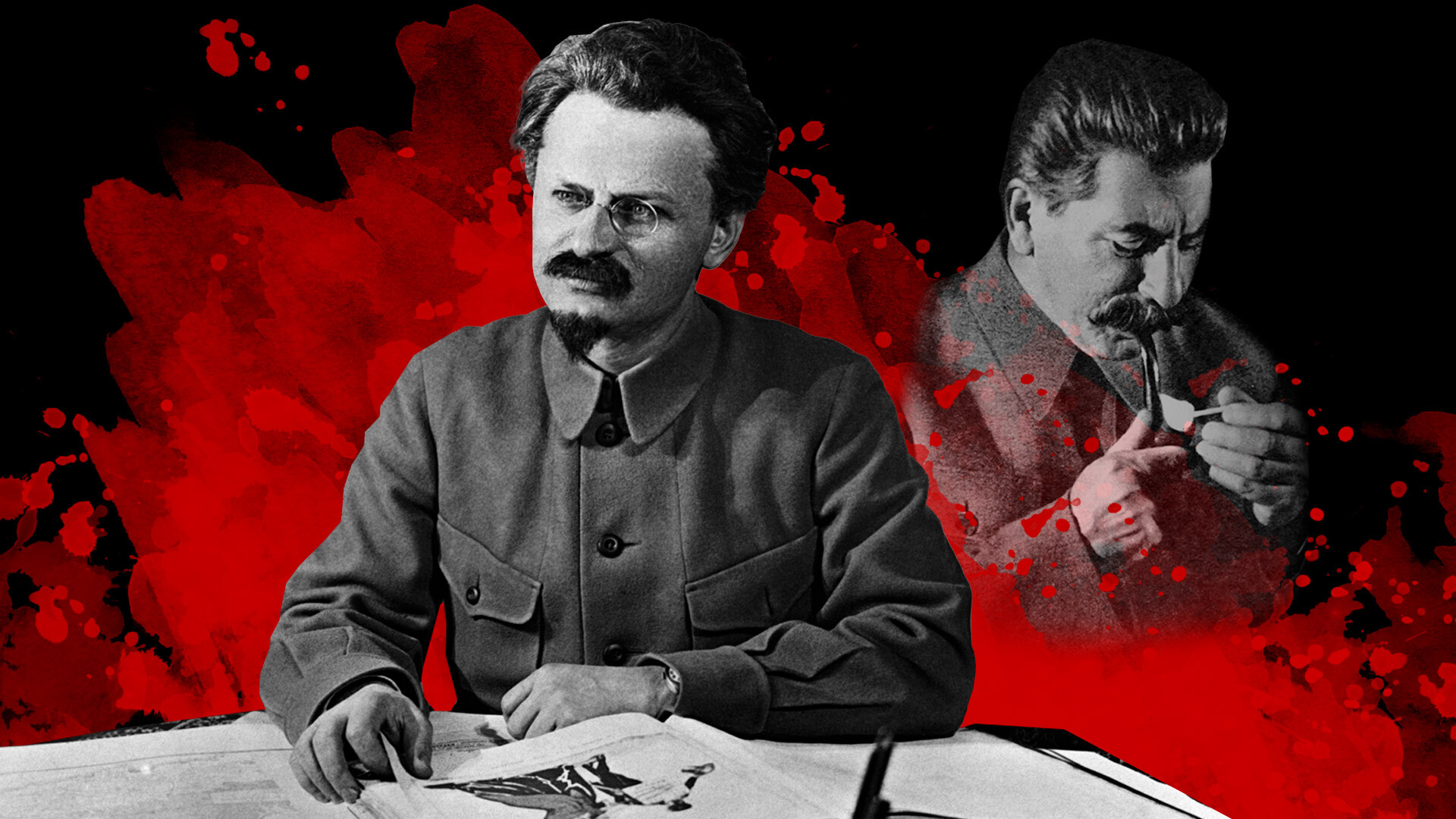
Stalin, who did not tolerate competition, had reasons for a personal animosity towards Trotsky. The latter was the main associate of the undisputed leader of the Bolsheviks – Vladimir Lenin. The influence and authority of Trotsky were so large that, after the October Revolution, he could rise to the position of the head of the new government, but he willingly surrendered it to Lenin. During party work, Stalin and Trotsky had disagreements on many issues, but their animosity turned into a real hatred after the ‘Tsaritsyn conflict’. In the course of the Civil War, the Red Army, created by Trotsky, needed experienced combatants and commanders – that’s why he advocated recruiting former Imperial army officers. Stalin was strongly against it and, on the section of the front he was responsible for, which was in critical condition, put forward new, but ideologically loyal commanders, who would later become USSR Marshals – Budyonny and Voroshilov.
 Trotsky making a speech in front of the soldiers.
Trotsky making a speech in front of the soldiers.
Despite the fact that Trotsky was chairman of the Revolutionary Military Council, Stalin didn’t obey his orders and sent letters to Lenin, demanding to grant him military authority: “If Trotsky will, without thinking twice, grant mandates left and right… then we can confidently say that, in the North Caucasus, everything will fall apart in a month’s time… Ram it into his head… For the good of the cause, I need military authority… I won’t be stopped by the fact that Trotsky hasn’t issued me any papers.” Trotsky, in turn, demanded Stalin be dismissed. Lenin resolved this conflict in favor of Trotsky. Stalin was called off from the front to Moscow, but, soon after, he was appointed as a member of the Revolutionary Military Council. Trotsky, however, was the head of the Council, so the struggle between the two continued.
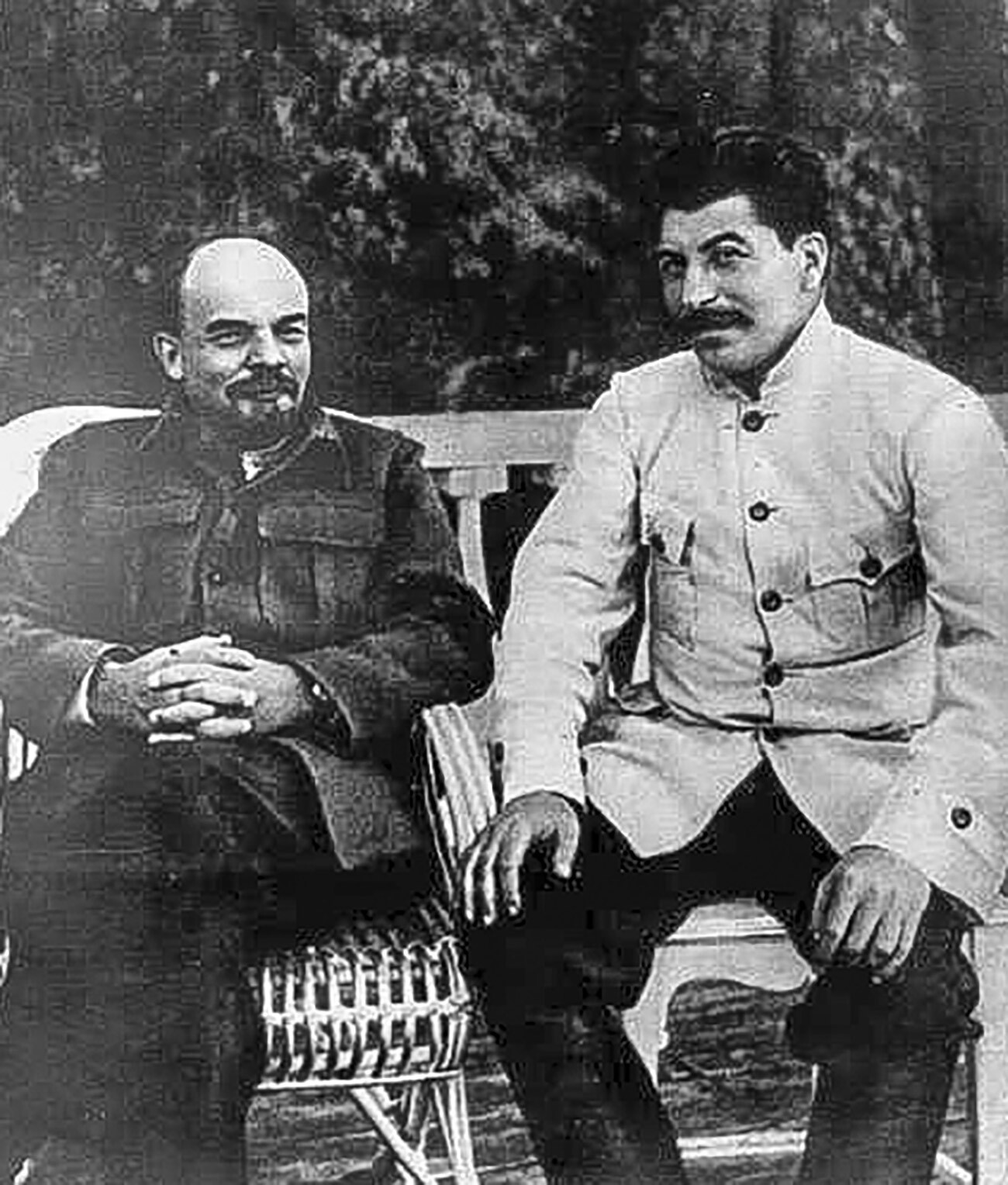 Vladimir Lenin and Joseph Stalin.
Vladimir Lenin and Joseph Stalin.
Lenin’s Testament and the struggle for power
The struggle between the two party leaders entered its open phase, due to Lenin’s illness – the leader of the party couldn’t engage in political activity anymore; he simply withdrew. In his letter to the 1922 Party Congress, called ‘Lenin’s Testament’, the leader feared that there will be a split within the party, because of the conflict between Stalin and Trotsky: “Stalin is too coarse and this defect, although quite tolerable in our midst and in dealing among us communists, becomes intolerable in a Secretary-General. That is why I suggest that the comrades think about a way of removing Stalin from that post and appointing another man in his stead, who, in all other respects, differs from Comrade Stalin in having only one advantage, namely, that of being more tolerant, more loyal, more polite and more considerate to the comrades, less capricious, etc.”
Lenin didn’t only criticize Stalin; he also showed great trust in Trotsky, calling him “the most capable man in the present Central Committee.” Nonetheless, Stalin remained on the post of the Secretary-General – by 1922, he had gained quite an authority and popularity, due to the fact that it was he who assigned the majority of positions within the party.
Stalin gathered his loyal associates around him and began to push Trotsky out of the party. The authority and influence of Trotsky were so massive that Stalin back then already contemplated how to get rid of this competitor. Stalin decided not to resort to extreme measures: Trotsky was removed from his posts, expelled from the party and, in 1929, expelled from the USSR.
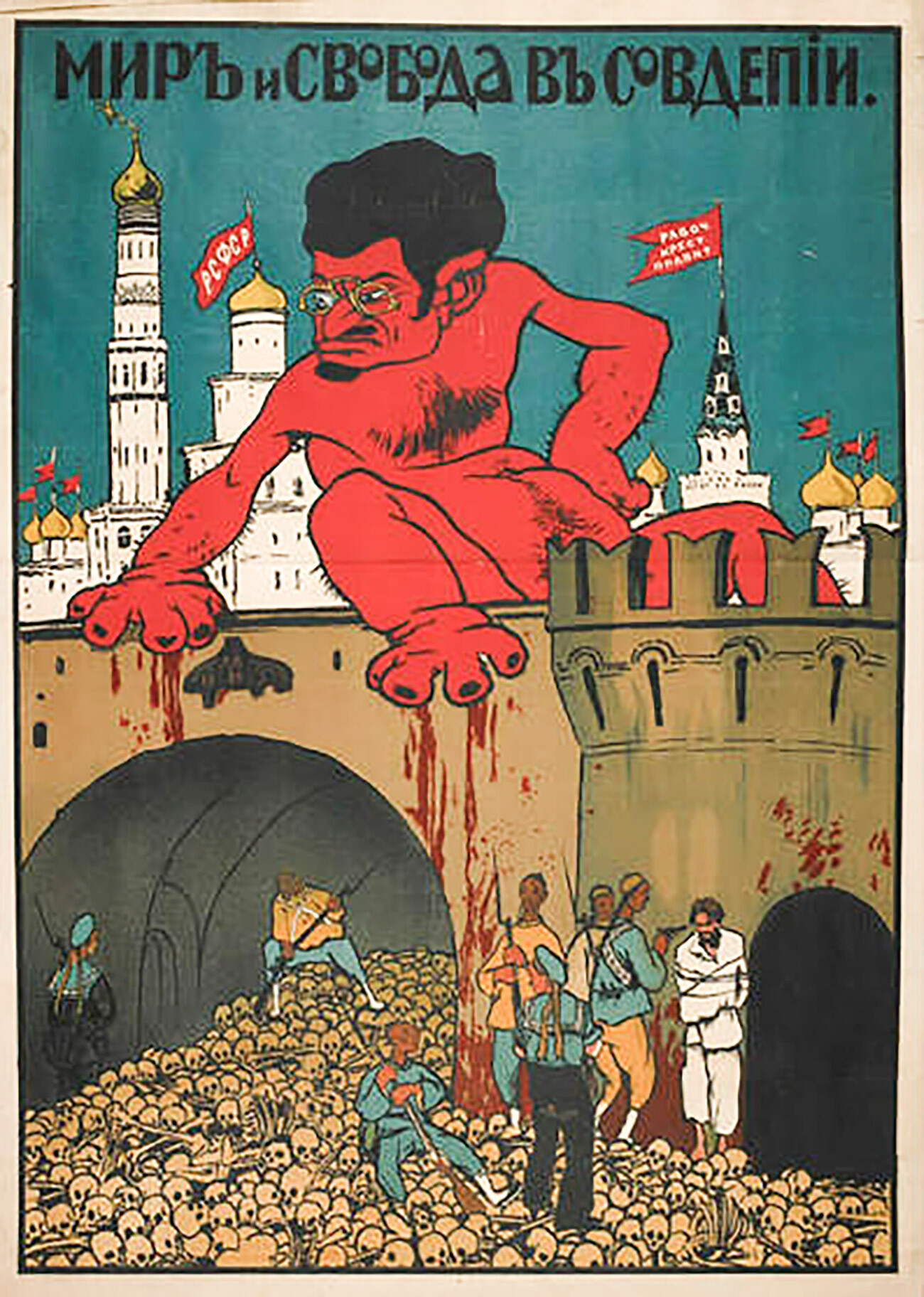 Caricature on Trotsky, depicting him as a cruel killer of masses.
Caricature on Trotsky, depicting him as a cruel killer of masses.
To be fair, it needs to be noted that fear of competition was far from the only reason for Stalin to fight Trotsky. He was quite clear-minded in assessing the possible consequences of the victory of Trotskyism. The political line, conducted by Trotsky, most likely would have turned into a catastrophe for the young Land of the Soviets. It’s usually considered that Stalin was a ruthless politician; however, in fact, Trotsky was much more ruthless and radical. He advocated full-scale terror and dictatorship within the country, as well as spreading the “fire of Revolution” across the entire world. And, if Stalin’s collectivization was considered violent, Trotsky’s plans towards the village population, if they were exercised, would have been truly hellish. Paradoxically, compared to Trotsky, Stalin looked like a much more clear-minded and rational politician.
‘Operation Mother’
In emigration, Trotsky didn’t step away from political activity: the Fourth International – an international communist organization - was founded based on his ideas. Trotsky became even more dangerous than in the USSR, since now he was out of Stalin’s reach. In his books and articles, written in emigration, Trotsky called his opponent “Hitler’s intendant” and criticized his cult of personality, totalitarianism and especially bureaucracy. The excuse for Trotsky’s assassination was the comparison he made between the USSR and Nazi Germany. Sudoplatov, the main organizer of Trotsky’s assassination, later recalled that Stalin explained the necessity to get rid of his former ally in such words: “Trotsky has to be eliminated within a year, before inevitable war commences. Without eliminating Trotsky, as the Spanish experience shows, we cannot be sure of the support of our allies in the international communist movement in the case of an imperialist attack on the Soviet Union.”
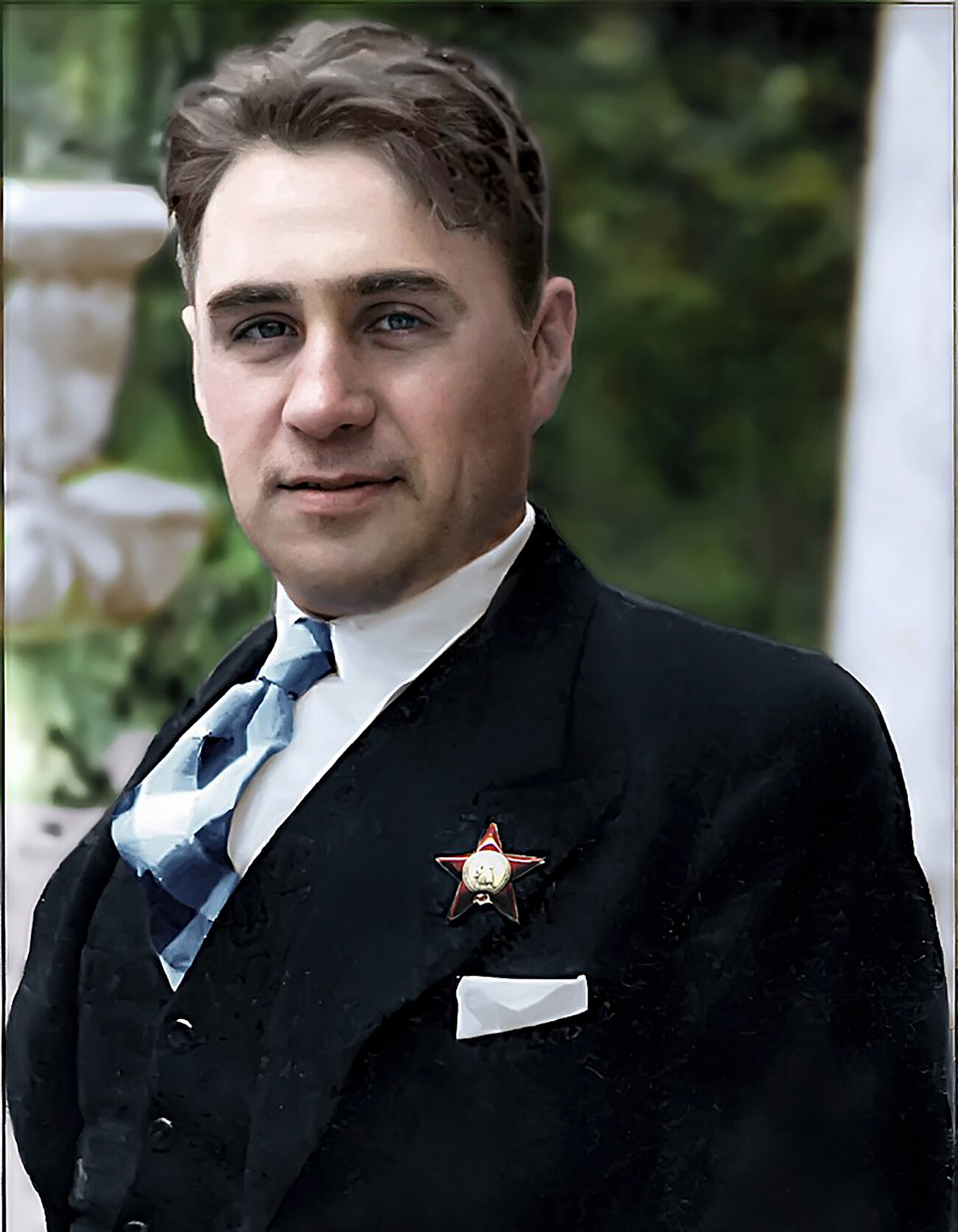 General Pavel Sudoplatov.
General Pavel Sudoplatov.
The first assassination attempt plan received the codename ‘Horse’ – a battle group opened fire on Trotsky’s residence. Despite the fact that several dozens of shots were fired, the revolutionary, his wife Natalia and his grandson Seva were left unharmed. Then, ‘Operation Mother’ commenced – Spanish communist Ramon Mercader was supposed to infiltrate the inner circle of Trotsky and get rid of him. He entered into a relationship with one of Trotsky’s secretaries with a fake Canadian passport as Frank Jackson. Coming to pick his girlfriend up after work, he slowly began to gain the trust of the inhabitants of the house: he was invited in, he showed interest towards Trotsky’s ideas and brought presents for his grandson. On August 20, 1940, Mercader brought a text in support of the Fourth International to the revolutionary, asking him to evaluate it – this was his excuse for a visit on the day of the assassination. On a hot day, Mercader came dressed in a raincoat, but that didn’t alert anyone – such a regular he was in the house. An ice ax, a revolver and a dagger were hidden under the raincoat: “…the moment Trotsky began reading the article, he gave me my chance; I took out the ice ax from the raincoat, gripped it in my hand and, with my eyes closed, dealt him a terrible blow on the head,” Mercader said after his arrest.
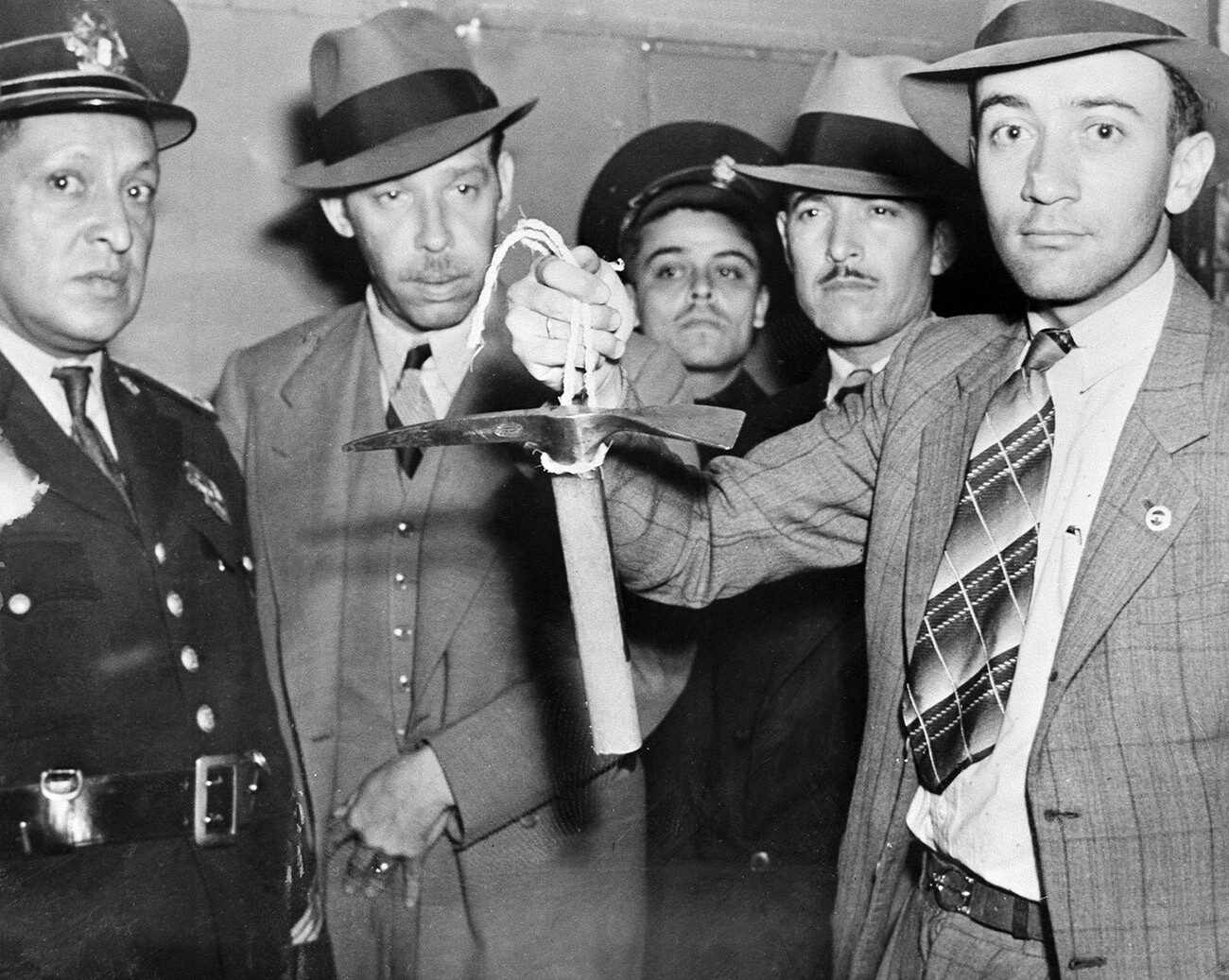 A Mexican policeman holds the short- handled pickax used by Ramon Mercader.
A Mexican policeman holds the short- handled pickax used by Ramon Mercader.
Doctors couldn’t save Trotsky: he died on August 21, 1940. The secretary wrote down his last words: “Please, tell my friends that I’m confident in the victory of the Fourth International… Carry on.” Ramon Mercader spent 19 years and 8 months in prison – after his release, he moved to the USSR and received the title of the Hero of the Soviet Union.
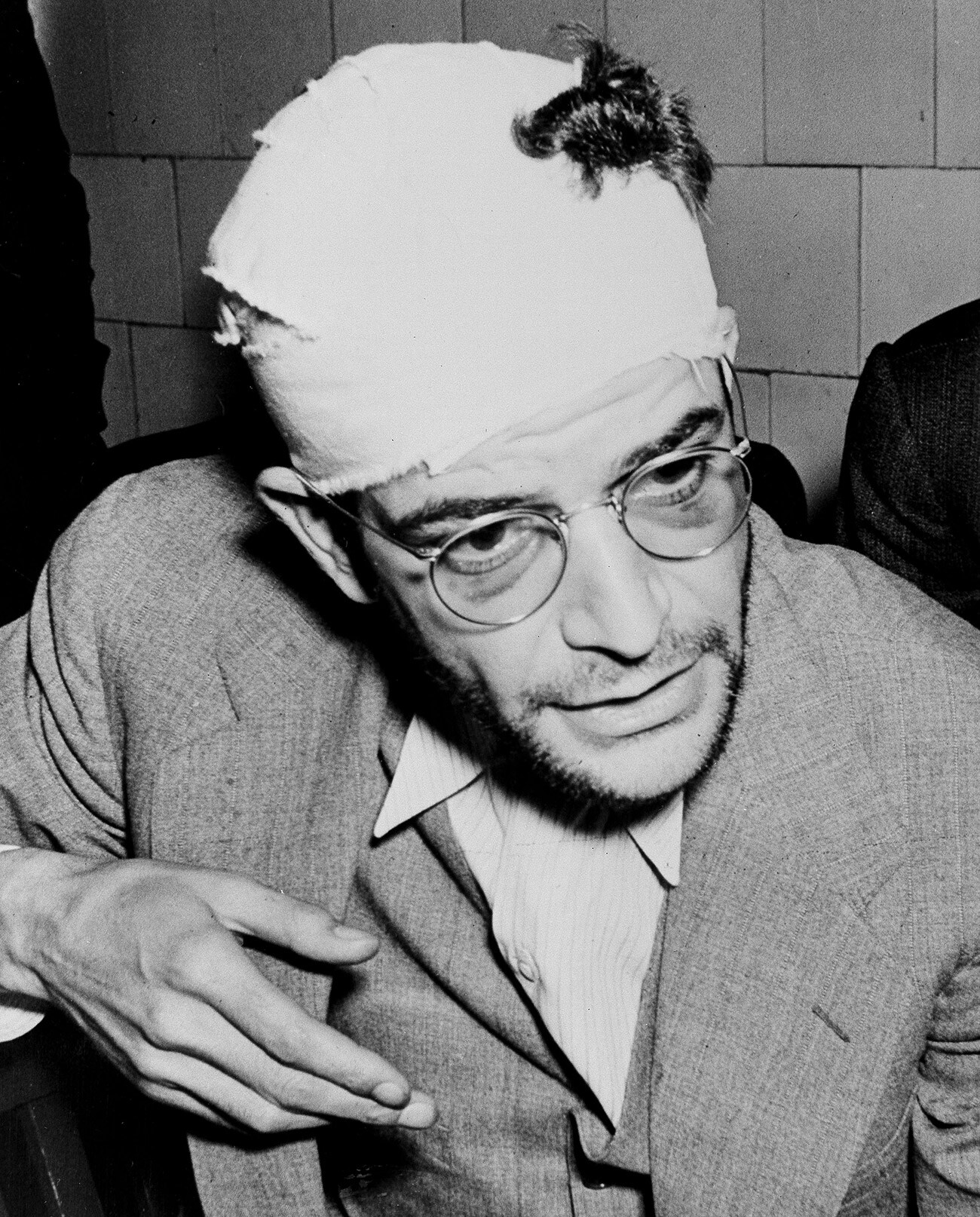 Ramon Mercader, aka Frank Jackson, Aug. 31, 1940.
Ramon Mercader, aka Frank Jackson, Aug. 31, 1940.

